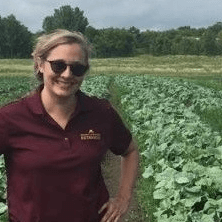Missed earlier articles on GAP audits, FSMA, and Produce Safety Rule? Read more at the following links:
Are You Thinking of Getting a GAP Audit this Year? Michele Schermann and Annalisa Hultberg (University of Minnesota)
Preparing for a USDA GAP Food Safety Audit Annalisa Hultberg and Michele Schermann (University of Minnesota)
Upcoming FSMA and Farm Food Safety Training Options Annalisa Hultberg and Michele Schermann (University of Minnesota) and Val Gamble (Minnesota Department of Agriculture)
Guest Author: Annalisa Hultberg, M.S. UMN Extension Educator, Food Safety
You may have heard about the FSMA Produce Safety Rule, new federal food safety legislation for fruit and vegetable farms. This Rule focuses on setting the first-ever federal regulatory standards for the production, harvest, and handling of fruits and vegetables in an effort to prevent microbial contamination and reduce foodborne illnesses. New standards are established in the following major areas:
- Worker Training and Health and Hygiene
- Agricultural Water
- Biological Soil Amendments of Animal Origin
- Domesticated and Wild Animals
- Equipment, Tools, and Buildings
Here are some questions and answers to help you understand the Rule and how it may impact your farm.

Q1. Is my farm covered by the FSMA produce safety rule?
There are several ways a farm or operation may be excluded or exempt from the FSMA Produce Safety Rule. Exclusions and exemptions are based on the types of commodities grown, total sales of produce annually, and where and to whom the food is sold. Definitions play a key role in understanding if a farm is subject to the FSMA Produce Safety Rule or not, so you will have to think about your own operation, read the Rule, and then determine if it applies to you.
First, some farms are not covered by the FSMA Produce Safety Rule:
- Farms with total sales of produce less than $25,000*
*This value is a three-year rolling average and it is adjusted for inflation. The adjusted value for 2017 is $26,632.
Second, know that the following types of produce are not covered by the FSMA Produce Safety Rule (for definitions of the following, see § 112.2 of the Produce Safety Rule)
- Produce that is rarely consumed raw* (see exhaustive list at the end of this article)
- Produce for personal or on-farm consumption
- Produce that is not a raw agricultural commodity
- Produce destined for commercial processing where there is a kill-step is eligible for a commercial processing exemption
Next, determine if your farm is eligible for a qualified exemption. Your farm is eligible for a qualified exemption if:
- Your farm is eligible for a qualified exemption* if you meet all of these categories:
- Your average annual food sales (produce and all other crops and value-added products) over the previous 3 years are less than $500,000**; and
- More than 50% of those food sales are to “qualified end-users,” such as restaurants, grocery stores and retail food establishments (including direct-to-store sales) located in your same state or within a 275 mile radius of your farm or to the consumer (direct marketing through farmers markets, community supported agriculture, internet sales, etc.).
*For more details on the criteria for meeting the conditions written above, see FDA Produce Safety Rule summary of exemptions and key provisions.
**This value is a three-year rolling average and it is adjusted for inflation. The adjusted value for 2017 is $532,645
Q2: My farm is eligible for a qualified exemption. What do I have to do?
You will need to demonstrate that your farm is eligible for the qualified exemption. This means you must keep sales records and make them available upon request.
If your farm is eligible for the qualified exemption, you must follow modified labeling requirements:
- When a food packaging label is required, you must prominently and conspicuously display on the food packaging label the name and the complete business address of the farm where the produce was grown; or
- When a food packaging label is not required on food you must prominently and conspicuously display, at the point of purchase (i.e. at the time of sale, like at the farmers’ market), the name and complete business address of the farm where the produce was grown, on a label, poster, sign, placard (internet sales: e-notice)
The complete business must include the street address or post office box, city, state, and zip code for domestic farms, and comparable full address information for foreign farms.
Commercial processing exemption: If your produce is eligible for the commercial processing exemption (produce is being treated with a validated process to eliminate microorganisms of public health concern), you must follow documentation requirements and retain records from the processor. Common validated commercial processing procedures include acidification processes, low-acid canned food processes, and juice processing. You must disclose in documents accompanying the produce in accordance with the practice of trade, that the food is “not processed to adequately reduce the presence of microorganisms of public health significance;” annually obtain written assurances from the customer; and document compliance with required disclosures and written assurances.
Q3: My farm is covered by the Rule, what do I do next?
The regulation states that if your farm is covered by the rule, ‘at least one supervisor or responsible party from the farm’ must complete food safety training at least equivalent to the standardized curriculum recognized by the FDA. (§112.22(c)). The Produce Safety Alliance (PSA), a national group based at Cornell University, has developed the FSMA training course that is one way to fulfill the training requirement of the Rule. This curriculum was extensively vetted by the PSA Executive Committee that includes FDA & USDA representation, academia and others. At the training, you will learn the specifics of what a covered farm must to do to be in compliance with the Produce Safety Rule.
PSA FSMA Trainings
Minnesota will host our first PSA FSMA Grower Trainings in 2018. These courses will be co-led by PSA staff, MDA Produce Safety Program staff, UMN Extension staff, and trained fruit and vegetable farmers. There will be more PSA FSMA grower trainings in the future in other parts of the state.
- January 17, 2018 8:30 a.m. – 5:00 p.m.
River's Edge Convention Center St. Cloud, MN
(Day before Upper Midwest Regional Fruit and Vegetable Growers annual conference)
- March 20, 2018 8:30 a.m. – 5:00 p.m.
Monticello Community Center Monticello, MN
(Day before the Minnesota Farmers’ Market Association annual conference
Benefits of Attending the FSMA Training Course
After attending the entire day-long course, participants will be eligible to receive a certificate from the Association of Food and Drug Officials (AFDO) that verifies they have completed the training course. This is a great opportunity to get a valuable credential, as the training credential belongs to the participant who attended and is good for life. Learning about GAPs and food safety is beneficial to all produce farms, no matter what size or type of operation, and can help prepare for a GAP audit if desired to enter new markets. Even farms that may be eligible for a qualified exemption are encouraged to attend the course.
Individuals who participate in this course are expected to gain a basic understanding of:
- Microorganisms relevant to produce safety and where they may be on the farm
- How to identify microbial risks, practices that reduce risks, and how to begin implementing produce safety practices on the farm
- Parts of a farm food safety plan and how to begin writing one
- Expectations in the FSMA Produce Safety Rule and how to meet them
To register: www.psp.tix.com. Cost: $25. (This is a subsidized cost and will likely rise in following years). Registration deadlines: Jan 10, 2018 or until full for St. Cloud Training. March 10, 2018 or until full for Monticello training. Preregistration required for both trainings.
Registration includes the training materials, lunch, refreshments, and a Certificate of Course Attendance issued by AFDO. Sign-in opens at 8:30. Training will begin at 9:00 and end at 5:00. You must be present for the full course to receive your certificate. Participation is limited to 30 participants on a first-come, first-served basis. Farms may send as many staff members from their operation as they like, but it will fill up, so sign up now.
Questions on registration? Contact the Minnesota Department of Agriculture Produce Safety Program at (651) 539-3648 or email producesafety.mda@state.mn.us.
Remember: even if you may qualify for an exemption now, your farm status may change in the future. And, you may not be exempt from buyer requirements; some buyers may start to require attendance at a PSA FSMA training course. Attending a FSMA training course is the best way to learn about GAPs and FSMA for all growers, regardless of how the Rule applies. Additionally, the price is subsidized right now via the MDA. The price for the course will go up in future years.
For more information:
For help with FSMA, GAPs and preparing for a GAP audit: Contact Annalisa at 612-625-1951 or hultb006@umn.edu.
For help determining if your farm is covered by the Produce Safety Rule and other questions pertaining to the regulation, contact the Minnesota Department of Agriculture Produce Safety Program at (651) 539-3648 or email producesafety.mda@state.mn.us.
Useful links:
Produce Safety Alliance: factsheets, guidance and recordkeeping templates for FSMA https://producesafetyalliance.cornell.edu/
FDA FSMA Final Rule on Produce Safety: https://www.fda.gov/Food/GuidanceRegulation/FSMA/ucm334114.htm
University of Minnesota Extension On-Farm GAPs Education Program: http://safety.cfans.umn.edu/
MDA Produce Safety Program: http://www.mda.state.mn.us/food/safety/producesafetyprogram.aspx
* What Produce is Considered “Rarely Consumed Raw” by the Produce Safety Rule?
The following 34 produce items are considered “rarely consumed raw” and are not covered by the Produce Safety Rule: Asparagus; beans, black; beans, great Northern; beans, kidney; beans, lima; beans, navy; beans, pinto; beets, garden (roots and tops); beets, sugar; cashews; cherries, sour; chickpeas; cocoa beans; coffee beans; collards; corn, sweet; cranberries; dates; dill (seeds and weed); eggplants; figs; ginger; hazelnuts; horseradish; lentils; okra; peanuts; pecans; peppermint; potatoes; pumpkins; squash, winter; sweet potatoes; and water chestnuts.
FDA states that this list is exhaustive. Produce not on this list is not exempt under the “rarely consumed raw” provision.
